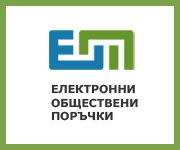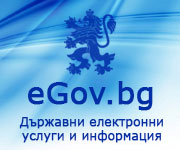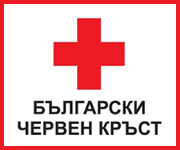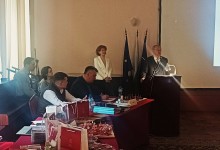Association of the Organizations of Bulgarian Employers presented its priorities for 2022
At a press conference on 26 January 2022, the Association of the Organizations of Bulgarian Employers (AOBE) presented its priorities for 2022. The press conference was attended by the heads of the employers' organizations - members of the AOBE: Vasil Velev - President of the Bulgarian Industrial Capital Association (BICA), Dobri Mitrev - President of the Bulgarian Industrial Association (BIA) and rotating chairman of AOBE for 2022, Tsvetan Simeonov - President of the Bulgarian Chamber of Commerce and Industry (BCCI), and Kiril Domuschiev - President of the Confederation of Employers and Industrialists in Bulgaria (CEIBG).
Consecutively the employers' organizations outlined:
- The national priorities around which the members of AOBE are united, the main ones being Bulgaria’s membership in the OECD and the country’s accelerated accession to the Eurozone, without delay.
- Priorities regarding: business environment and economic development; energy and the green transition; education and labour market; social policy, European policies and investment.
Presenting the priorities of AOBE in the field of education and the labour market, the President of the Bulgarian Chamber of Commerce and Industry Tsvetan Simeonov pointed out: "There is a systematic shortage of skilled workers in the labour market (not only in Bulgaria). The adult education system in Bulgaria does not work as it does in the EU. In the EU, the percentage of those who study at an older age is 9.2%, and in Bulgaria we are still at the level of 1.6%. We want to continue our efforts to link education to the needs of the labour market - a lot has been done, but we are still far away. A very important element for Bulgaria is attracting highly qualified specialists from abroad. In the period from 2012 to 2020, 1040 such specialists were attracted to Bulgaria - this is laughable. All forecasts indicate that unemployment will continue to decline and labour shortages will increase."
The specific priorities in this area are: Improving the opportunities for attracting foreign students and providing opportunities for foreign citizens who have acquired their higher education in Bulgaria to gain access to the labour market in Bulgaria; Improving the digital skills of the workforce; Programme for inclusion of the persons permanently isolated from the educational process and/or the labour market through compulsory education through work, etc., including coercive measures as well as incentives; Creating conditions for active participation in the labour market of working mothers by providing affordable services for raising children (construction of nurseries, kindergartens, including through public-private partnership).
Още новини:
-
21-01-2022
-
21-01-2022

 1 USD =
1 USD =  1 GBP =
1 GBP =  1 CHF =
1 CHF =  ISO 9001:2015
ISO 9001:2015






























